Request a video call
Confirm Your Virtual Consultation
Panama Fertility - Advanced IVF Clinic in Panama City Profile Overview
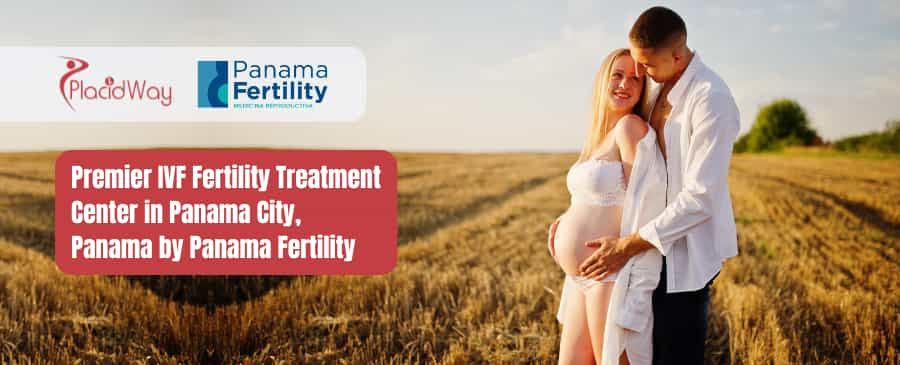
Advanced Fertility Clinic in Panama City by Panama Fertility
Struggling to conceive and looking for expert care? Panama Fertility offers advanced IVF Fertility Treatment in Panama City, Panama with a highly experienced team, state-of-the-art technology, and personalized care to help you achieve your dream of having a baby.
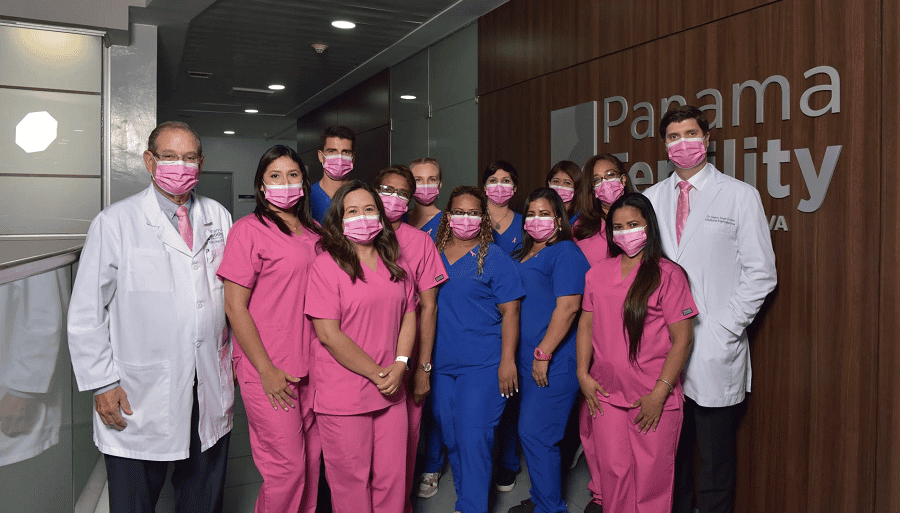
Led by Dr. Mario Vega-Rich, Medical Director, and Dr. Mario Vega Croker, Scientific Director, the clinic is known for its high success rates and compassionate approach. Whether you need IVF, ICSI, egg freezing, or other fertility solutions, Panama Fertility is here to support your journey to parenthood.
Why Choose IVF Treatments in Panama City, Panama?
Average Cost of IVF Treatment in Panama City, Panama
The Average Cost of IVF Fertility Treatment in Panama City, Panama, is significantly lower than in the US and Canada, where prices can be prohibitively expensive. In Panama, couples can access high-quality fertility care with experienced specialists and advanced technology at a fraction of the cost. This affordability, combined with personalized treatment and a welcoming environment, makes Panama an excellent choice for those seeking effective and budget-friendly IVF options.
|
Procedure |
Cost in USD |
|
In Vitro Fertilization (IVF) |
$6,000 |
|
Preimplantation Genetic Diagnosis (PGD) |
$3,850 |
|
Tubal Ligation Reversal |
$5,500 |
|
IVF with Egg Donation |
$8,500 |
|
IVF with Gender Selection |
$9,850 |
|
IVF SELECT (Includes PGS) |
$7,950 |
|
In Vitro Fertilization (IVF) Basic |
$4,950 |
|
Egg Donation |
$9,450 |
|
Select Ovodonation with PGS Study |
$11,450 |
|
Frozen Embryo Transfer Cycle |
$1,950 |
|
Intrauterine Insemination (IUI) |
$850 |
Note: price may change and vary depends on complexity of procedures and patient conditions. Click FREE QUOTE button below to learn more.
We Help You Achieve Your Dream of Having a Baby at Panama Fertility!

At Panama Fertility, we help you achieve your dream of having a baby with advanced fertility treatments, personalized care, and expert guidance. Our experienced team, state-of-the-art technology, and proven success rates make us a trusted choice for couples worldwide. IVF, egg donation, and genetic screening are just some of the tailored solutions we offer to increase your chances of success. Start your journey toward parenthood with confidence at Panama Fertility!
FAQs (Frequently Asked Questions)
Panama Fertility - Advanced IVF Clinic in Panama City, Panama City, Panama Profile Details
Cutting-Edge Fertility Technology at Panama Fertility in Panama City
IVF Treatment Center in Panama City, Panama by Panama Fertility is at the forefront of reproductive medicine, utilizing state-of-the-art technologies to improve success rates. The clinic offers advanced treatments such as In Vitro Fertilization (IVF), Intracytoplasmic Sperm Injection (ICSI), Preimplantation Genetic Testing for Aneuploidy (PGT-A), and embryo freezing. These cutting-edge techniques ensure that patients receive high-quality fertility care comparable to top international standards. With a team of skilled specialists and modern laboratory facilities, Panama Fertility provides precise and effective solutions tailored to each patient’s needs.
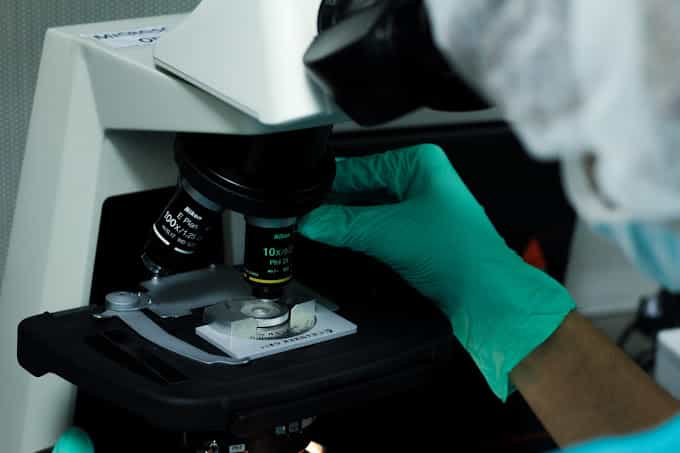
Am I Suitable Candidate for IVF at Panama Fertility?
IVF at Panama Fertility is an excellent option for individuals and couples struggling with infertility due to various factors. Suitable candidates include women with blocked fallopian tubes, endometriosis, polycystic ovary syndrome (PCOS), or diminished ovarian reserve. Men experiencing low sperm count or poor sperm motility can also benefit from assisted reproductive techniques like ICSI. Additionally, couples who have experienced multiple pregnancy losses or failed fertility treatments may find success through the clinic’s specialized approaches. For those requiring donor eggs, Panama Fertility provides ethical and well-regulated programs to support family-building journeys.
What to Expect from IVF Treatment in Panama City, Panama
Patients undergoing IVF at Panama Fertility can expect a comprehensive and patient-centered approach throughout their treatment. The process involves ovarian stimulation, egg retrieval, fertilization in a high-tech lab, and embryo transfer. Throughout the journey, expert fertility specialists provide guidance, monitoring, and emotional support to optimize success. While individual results may vary, many patients achieve pregnancy within one or multiple cycles. The clinic’s commitment to quality care and innovation ensures that hopeful parents receive the best possible chances of fulfilling their dream of having a baby.
Panama Fertility - Advanced IVF Clinic in Panama City Treatments Offered
Comprehensive Fertility Treatments at Panama Fertility in Panama City
Panama Fertility offers a wide range of advanced fertility treatments designed to help individuals and couples achieve their dream of parenthood. Using state-of-the-art technology and personalized care, the clinic provides innovative solutions for various fertility challenges, ensuring the best possible outcomes.
Panama Fertility is committed to providing world-class fertility care with a compassionate approach. By combining the latest reproductive technologies with personalized treatment plans, the clinic helps patients navigate their fertility journey with confidence and hope.
Panama Fertility - Advanced IVF Clinic in Panama City Certificates, Accreditations, Qualifications Treatments Offered
IVF Specialists at Panama Fertility in Panama City, Panama
Panama Fertility is home to a team of highly skilled specialists for IVF Treatment in Panama City, Panama dedicated to helping individuals and couples achieve their dream of parenthood. With a strong emphasis on personalized care, advanced reproductive technology, and a patient-centered approach, the clinic has earned a reputation for excellence in fertility treatments. Their experienced doctors ensure that every patient receives the highest level of expertise and support throughout their fertility journey.

Dr. Mario Vega-Rich
Dr. Mario Vega Croker
At Panama Fertility, patients benefit from a dedicated team that combines expertise, innovation, and compassionate care. The clinic’s specialists work closely with each individual to create customized fertility solutions, making it a trusted destination for those seeking world-class IVF treatments in Panama City.
Panama Fertility - Advanced IVF Clinic in Panama City Testimonials
Hear from Happy Families: Testimonials for Panama Fertility in Panama City
At Panama Fertility, countless families have turned their dreams of parenthood into reality. Patients from around the world share their success stories, highlighting the clinic’s expertise, compassionate care, and advanced fertility treatments. From personalized IVF journeys to groundbreaking fertility solutions, these testimonials reflect the dedication and excellence that make Panama Fertility a trusted choice.
Every story is unique, but they all share a common thread—hope, resilience, and the joy of welcoming a baby into their lives. Explore real patient experiences and see how Panama Fertility has helped families grow.
Panama Fertility - Advanced IVF Clinic in Panama City Awards & Recognitions
Certified Excellence in Fertility Care at Panama Fertility in Panama City
Panama Fertility is internationally recognized for its commitment to high standards in fertility care, holding prestigious certifications that ensure safety, quality, and success in assisted reproductive treatments. These certifications reflect the clinic’s dedication to using cutting-edge technology, adhering to strict medical protocols, and maintaining excellence in patient care.
Panama Fertility Certificate
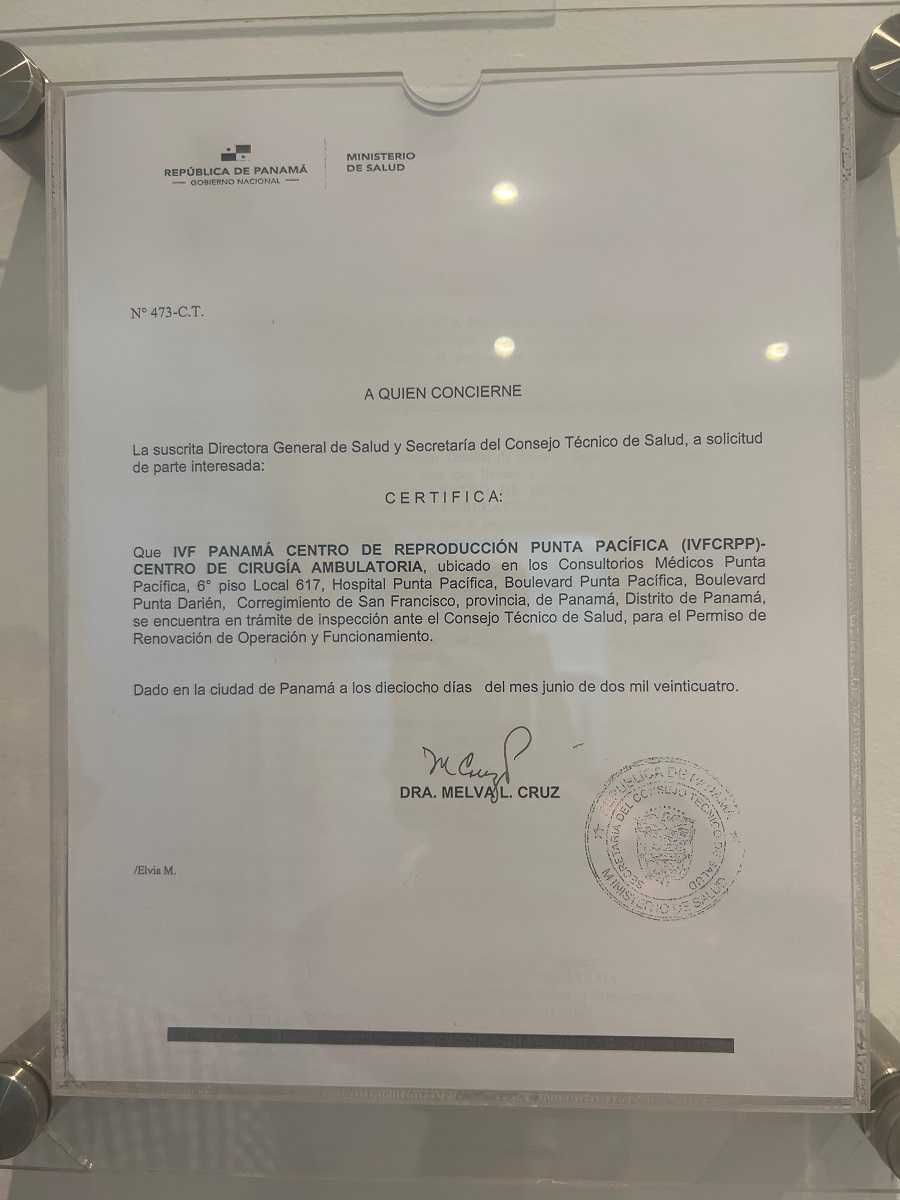
With a team of highly skilled specialists and a state-of-the-art facility, Panama Fertility continues to provide world-class fertility solutions. Their certified approach guarantees that every patient receives the best possible treatment, increasing the chances of a successful pregnancy in a safe and supportive environment.
Panama City, Panama Destination Overview

Medical Tourism for Fertility Treatment in Panama City, Panama
Panama City has become a sought-after destination for medical tourism, especially for those seeking fertility treatments. With world-class fertility clinics, advanced reproductive technology, and internationally trained specialists, the city provides high-quality care at a fraction of the cost compared to the US and Canada. Patients can undergo treatments like IVF, ICSI, and egg freezing while enjoying the vibrant culture and stunning attractions of Panama.
How to Reach Panama City for Your Fertility Journey
Getting to Panama City is convenient, with multiple transportation options available. Tocumen International Airport (PTY) serves as the main gateway, offering direct flights from major cities worldwide. Travelers can also reach Panama by bus from neighboring countries, by car via the Pan-American Highway, or even by cruise ships docking at the city’s ports. Once in Panama City, taxis, rental cars, and public transit make it easy to get around.
Travel Tips for a Smooth Medical Tourism Experience
Planning your fertility treatment in Panama City requires some preparation to ensure a stress-free trip. Research the best time to travel, pack necessary medical records, and communicate with the clinic for pre-arrival guidance. It's also helpful to learn a few basic Spanish phrases, although most medical staff speak English. Travelers should choose accommodations near the clinic for easy access and schedule enough time for relaxation and recovery.
Visa Requirements and Support for International Patients
Most travelers coming to Panama for medical tourism can enter the country with just a valid passport, especially from the US, Canada, and Europe. However, some nationalities may require a visa, so checking with the Panamanian embassy beforehand is recommended. Many fertility centers assist patients with visa documentation, travel arrangements, and accommodation, including airport pick-up services, to ensure a hassle-free experience.
Location
Reviews

About Medical Center
- Translations: EN ES
- Speciality: Fertility Treatment, Infertility/IVF, Gynecology Treatment
- Location: Consultorios Medicos Punta Pacífica, 6º Piso Local 617, Hospital, Panama , Panama City , Panama
- Packages: IVF Treatment with PGS Package in Panama City by Panama Fertility , Tubal Ligation Reversal Package in Panama City by Panama Fertility , Affordable PGD Package in Panama City by Panama Fertility , Advanced IVF Treatment in Panama City - High Success Rates at Panama Fertility ,
- Medically reviewed by: Dr. Mario Vega-Rich
- Associated Doctors: Dr. Mario Vega-Rich , Dr. Mario Vega Croker
- Medical Center Videos: Panama Fertility - Advanced IVF Clinic in Panama City
- Medical Center Prices: Panama Fertility - Advanced IVF Clinic in Panama City
- Overview: Panama Fertility is a top fertility clinic in Panama City, offering all advanced treatments like IVF, ICSI, egg and sperm donation, PGS/PGD, and fertility preservation with high success rates.














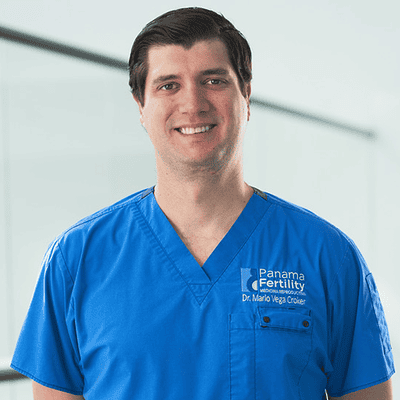


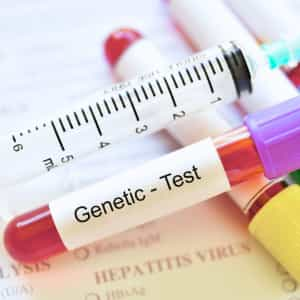


.png)
.png)
.png)
.png)
.png)
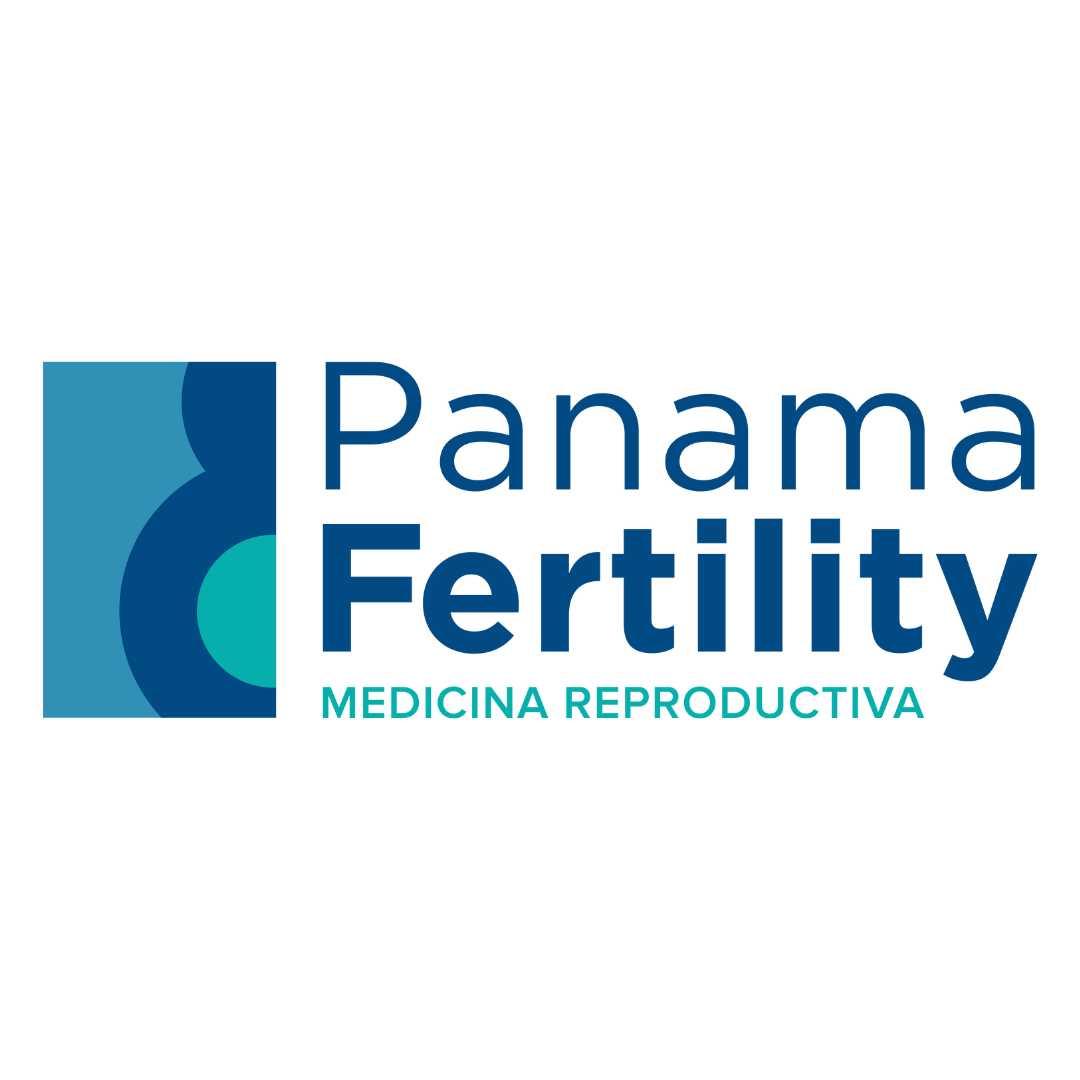



Share this listing